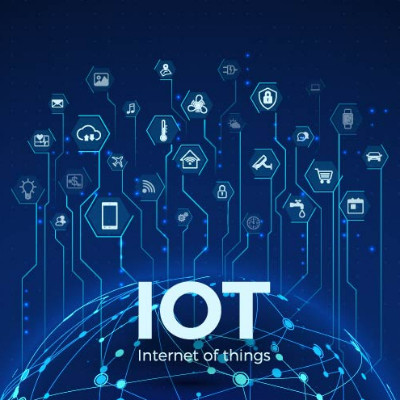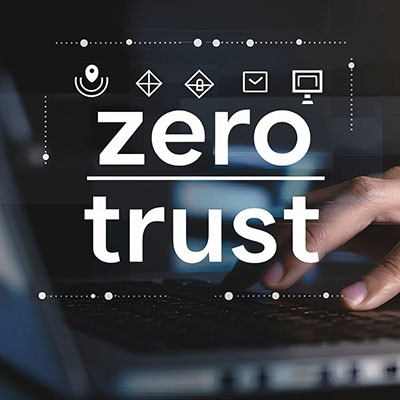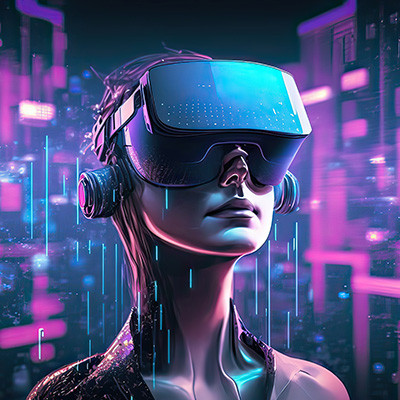Cambium Data Blog
With AI taking over the zeitgeist, you’re probably wondering what the big deal is and how you can use it for your business. That said, AI is far from infallible: you can experience issues with your AI models. We’re not just talking about operational problems; we’re talking about the value and validity of its responses to your queries.
The Chief Information Officer of a business has the primary responsibility of managing the organization’s technology, which in turn places a lot of stress on them as an individual. They implement strategies to help the business thrive, but they also take the blame for when those initiatives fail. They might even be tempted to say “yes” to requests even when they might feel like they should say “no.” Let’s look at three technologies that CIOs are implementing for businesses.
Let me ask you something: what do you do when one of the many, many little icons on your dashboard suddenly lights up? Chances are pretty good that some part of you starts adding up the anticipated costs of whatever repairs are going to be necessary. It’s stressful and can easily throw off your day, especially if that light is immediately followed by your car breaking down.
So, if this experience is so stressful, why use the exact same strategy where your business’ technology is concerned?
Small and medium-sized businesses (SMBs) need every advantage they can get. The Internet of Things (IoT) offers a powerful way to boost efficiency and drive growth.
Simply put, IoT connects everyday business objects—from machinery and vehicles to thermostats and inventory—to the internet. These connected "things" use sensors to gather data and communicate, often automating actions without human intervention. This creates smarter, more responsive business operations.
By now, you’ve heard us discuss how data backup is extremely important for every organization. We try to spread awareness of the negative impacts to a business that doesn’t have a comprehensive backup plan in place. Fortunately, data backup has come a long way in the past decade, making it easier, faster, and way more reliable. Let’s take a look at how things have changed in data backup.
Unless you’ve been living completely off the grid, you’ve probably heard of Facebook, Twitter (now X), and Instagram. Most people are on at least one of these platforms—or maybe they’re on TikTok, YouTube, or LinkedIn. Businesses have also relied on these platforms for marketing. But even though these companies are worth billions, people are starting to question whether these platforms can keep going as they are. In this blog, we’ll break down some of the problems with today’s biggest social media platforms and why alternatives might be the future.
You may remember the hubbub and hullabaloo that ensued when Josh Allen, a digital artist, won first place at the 2022 Colorado State Fair’s Fine Arts Competition in the Digital Arts/Digitally Manipulated Photography contest with an image—"Théâtre D'opéra Spatial"—that he had created using AI. Allen continues defending his work, now butting heads with the Copyright Office.
The concept of a four-day-long workweek is one of the latest trends that businesses of all shapes and sizes are pondering. It has been touted to have significant benefits for both their operations and the employees who carry them out. However, is the “compressed” workweek the route your business should go?
Well, as is so often the answer, that depends. Let’s examine the concept of a compressed workweek and its application more closely.
Technology is usually at the forefront of any major shift in a business’ operations to at least some degree. One interesting technology that has emerged in certain workplaces is augmented reality, or AR for short. Today, we’re considering specific instances where a business can implement AR to surprising benefits.
When we call ourselves a managed service provider (MSP), it still isn’t common knowledge what we mean by that. Perhaps the simplest way to describe our role is to call us an outsourced IT support provider, but even this definition falls short of the value we can offer. To remedy this, we wanted to review what one of our clients expects (and rightly so) to receive from a partnership with us.
The modern business landscape is fueled, in large part, by something we refer to as professional services. This typically includes any business model with trained professionals at the center of the business. In today’s economy, this can include tradesmen, but typically, it means consultants, lawyers, agents, and other professionals essential to moving business forward. Today, we thought we would briefly go into some of the technologies that professional services depend on.
The definition of sustainability, according to the United Nations, is “meeting the needs of the present without compromising the ability of future generations to meet their own needs.” Originally coined in 1987, this definition has fueled businesses' efforts to work toward their own versions of sustainability, as per their service models. Let’s look at some ways you can make your own operations more sustainable.
Technology can bring many dynamic benefits to an organization, but it can also derail its successful trajectory. One of the significant considerations that must be made is whether the technology your organization is implementing fits your business needs. Today, we will describe how having a knowledgeable perspective can help you avoid making investments that may not produce the rapid returns that most small businesses require.
Are you familiar with the works of Isaac Asimov? The author wrote a short story called “Runaround” in 1942, and it introduced the idea of the Three Laws of Robotics, or laws that all of the robots in his Robots series must follow. This stranger-than-reality concept is being used today by Google, which has announced a set of safeguards partially inspired by these three laws to help it control future AI-powered machines.
As the popularity of blockchain technology continues to rise, it's essential to explore its functionality and understand why it deserves attention. While commonly portrayed as a dubious tool associated with cryptocurrencies and scams, the fundamental nature of blockchain is far from nefarious. In reality, its decentralized and transparent attributes make it well-suited for various tasks, and we'll describe how it can be used for more than cryptocurrency below.
These days, it feels like things change quickly and without warning, but there are certainly still some parts of the holiday season that retain some of the good, old-fashioned traditions of yesteryear. While the holiday season is more commercialized than ever, technology has made it more viable to spend these times of laughter, leisure, and cheer with loved ones, even if you’re far apart physically.
Considering the amount of data created on a daily basis, there will eventually come a time when the amount of data will outweigh our ability to store it. The technology giants at Microsoft are taking the initiative to find a solution to this dilemma, and they are working with the University of Southampton in England to make this vision come to life.
AI might feel like a technology perfectly at home in the world of science fiction, but the truth is that most of its uses are not nearly as interesting or fun. Take, for example, Operation Green Light, an initiative from Google that aims to better society through examining AI for traffic control and its impact on the environment.
Technology is constantly evolving and shaping the way we do business. From artificial intelligence to virtual reality, these advancements have the potential to revolutionize industries and drive success. However, not all technologies are met with open arms. In fact, some technologies are met with controversy and skepticism. In this article, we will explore some of the most controversial business technologies and the impact they have on the market.




















